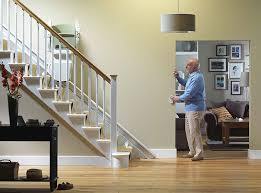If you’re looking for a way to pay for your stair lift, you have many options. The BenefitsCheckup team constantly monitors changes in the benefits landscape and can assist you with finding local resources that help pay for a stair lift.
Currently, Original Medicare Parts A and B do not cover stair lifts because they are not considered Durable Medical Equipment (DIME). However, some Medicare Advantage plans may cover a stair lift.
Medicare Part C
Stair lifts are expensive home modifications and it’s understandable why many seniors wonder if Medicare will help pay for them. The answer is not straightforward and depends on which plan you’re enrolled in.
Original Medicare (Parts A & B) does not cover stairlifts as it doesn’t view them as medically necessary. Instead, they consider them a home modification that requires changes to the structure of your home.
However, Medicare Advantage plans that are managed by private insurers may provide coverage as a supplemental benefit. If this is the case, then you would need to research your specific plan to learn more about the details of the coverage. You can also find this information by using our Medicare plan finder tool.
Medicare Advantage
Currently, Medicare Advantage plans (also known as Medigap) do not cover stair lifts. These are the newer evolutions of Medicare and offer supplemental benefits through private-sector health insurance companies. However, these supplemental plans only cover when Medicare does and they must adhere to the same rules as regular Medicare insurance.
Original Medicare Part B does cover durable medical equipment, including some types of stair lifts, but only if they are freestanding and do not require permanent changes to the home’s structure. In very limited circumstances, original Medicare may even cover a stair lift with an elevating seat feature.
Stair lifts are expensive home modifications, but they can help seniors age-in-place more comfortably and safely. Check with your long-term care insurance provider for more details.
Medicare Part D
Stair lifts aren’t covered by Medicare Part D because they don’t fall under the category of durable medical equipment. Instead, they’re considered to be a home modification.
However, if you have a high-end stair lift with an elevating seat, you may be eligible for a small portion of the cost to be paid by original Medicare if your doctor prescribes it.
Medicaid offers a similar program, but it varies by state. Some people with both Medicare and Medicaid may be able to get help paying for a stair lift from their local home and community-based services waiver program. For more details on these programs, check out this helpful website. BenefitsCheckup tracks policy changes and helps seniors find programs in their area that can help them afford a stair lift or other home modifications.
Medicaid
Original Medicare does not cover stair lifts or chair lifts because they are not considered durable medical equipment. However, there is one small exception: Original Medicare may pay for a portion of a stair lift that has an elevating seat component that allows the person riding the lift to sit down and stand up safely from the chair.
This feature is also available on some Medicare Advantage plans. In addition, some long-term care insurance policies and state plan Medicaid programs may cover a stair lift. State Medicaid programs vary from one to the next, so it’s important to check with your local office to see what options are available.
As with other types of durable medical equipment, a stair lift will only be covered by Medicare or another insurer if it is deemed medically necessary and proven with a doctor’s prescription or letter.
Other Funding Sources
Many seniors are unsure whether their Medicare coverage will help them pay for the cost of a stair lift. While original Medicare does not cover this device, a Medicare Advantage plan may offer a coverage option for seniors.
Many private insurance policies, including long-term care policies, will cover the cost of a stair lift as well. Some even offer financing, which makes it easier for seniors to afford the device.
For those who are dual eligible with both Medicare and Medicaid, their state program may also help pay for the stair lift as part of a Home and Community Based Services waiver. Each state has its own policy, so it is important to speak with your local Medicaid office to find out more information.

